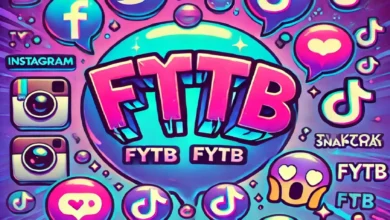
The word “cult” originally comes from the Latin “cult”, which means “worship”.
Throughout history, people have come together in special groups called “human gathering cults.” These gatherings, filled with rituals and shared beliefs, have fascinated experts for ages. They can be ancient religious ceremonies or modern social movements. Human gathering cults have a strong hold on people’s hearts and minds, connecting them through a sense of belonging. They’ve left their mark on human history, influencing how we think and act together. Exploring these gatherings helps us understand how humans form groups, why we believe certain things, and what drives us to connect with others. By studying human gathering cults, we uncover secrets of our past and find clues about our present desires for meaning and connection.
- The Genesis of Community: Understanding Human Gathering Cults
- Rituals and Ceremonies: The Soul of Human Gathering Cults
- The Power of Belonging: Finding Meaning in Community
- The Dark Side: Navigating the Shadows of Human Gathering Cults
- Embracing the Complexity of Human Gathering Cults
- Frequently Asked Questions (FAQs)
The Genesis of Community: Understanding Human Gathering Cults
At their core, human gathering cults are communities formed around shared beliefs, values, or experiences. Unlike traditional religious or social groups, these cults often exist on the fringes of mainstream society, drawing individuals who feel disconnected or disillusioned with conventional norms. Whether centered around spirituality, ideology, or simply a desire for communal living, these groups offer a sanctuary for those seeking deeper connections with like-minded souls.
The origins of human gathering cults can be traced back to the earliest epochs of human history, where communal rituals and ceremonies played a central role in binding together small bands of hunter-gatherers. These gatherings served not only as occasions for religious expression but also as forums for social cohesion, resource distribution, and conflict resolution. Over time, as human societies became more complex, the rituals associated with these gatherings evolved, giving rise to elaborate belief systems, hierarchical structures, and specialized roles within the community.
In ancient civilizations such as Mesopotamia, Egypt, and Mesoamerica, human gathering cults took on myriad forms, ranging from the worship of nature deities to the veneration of ancestral spirits. These cults often revolved around elaborate temple complexes, where priests and priestesses conducted rituals to appease the gods and ensure the prosperity of the community. The rituals themselves were imbued with symbolic significance, drawing upon myths, legends, and cosmological beliefs to reinforce social norms and values.
As societies progressed into the classical era, human gathering cults underwent further transformations, incorporating elements of philosophy, ethics, and mysticism. In ancient Greece, for example, the Eleusinian Mysteries were renowned for their secretive rituals and initiation ceremonies, which promised initiates a glimpse into the mysteries of the afterlife. Similarly, the Orphic cults espoused a doctrine of purification and spiritual salvation, emphasizing the importance of moral integrity and divine communion.
Rituals and Ceremonies: The Soul of Human Gathering Cults
Central to the identity of any human gathering cult are its rituals and ceremonies. From elaborate initiation rites to daily practices imbued with symbolic meaning, these rituals serve as the glue that binds members together. Whether through chanting, meditation, or ecstatic dance, participants find solace, purpose, and transcendence in shared experiences that transcend the mundane.
Throughout history, rituals have played a central role in human societies, serving as mechanisms for social cohesion, identity formation, and the negotiation of power dynamics within communities. In prehistoric times, communal rituals such as hunting ceremonies, fertility rites, and ancestor worship rituals were essential for strengthening bonds among group members and affirming their shared cultural heritage. These rituals often involved elaborate performances, symbolic gestures, and communal feasting, creating a sense of solidarity and belonging among participants.
As human societies evolved and organized into complex civilizations, rituals and ceremonies became increasingly institutionalized, assuming a central role in religious and political life. In ancient Egypt, for example, rituals surrounding the cult of the pharaoh were integral to maintaining social order and legitimizing dynastic rule. Similarly, in ancient Greece, religious festivals such as the Panathenaea and the Dionysia served as occasions for communal celebration, artistic expression, and civic pride, reinforcing the bonds of citizenship and cultural identity.
The Power of Belonging: Finding Meaning in Community
Perhaps the most compelling allure of human gathering cults lies in the sense of belonging they provide. In a world increasingly defined by isolation and disconnection, these communities offer a refuge—a place where individuals can truly be themselves without fear of judgment or rejection. Through shared experiences, mutual support, and a shared sense of purpose, members forge bonds that endure the test of time.
Human gathering cults, whether ancient or contemporary, religious or secular, offer a sanctuary for the human spirit—a sacred space where individuals can find solace, inspiration, and a sense of belonging amidst the tumult of life. From the solemn rituals of religious ceremonies to the exuberant festivities of cultural festivals, these gatherings serve as crucibles of community, uniting individuals in shared experiences and shared values. In the embrace of community, individuals find affirmation, validation, and a profound sense of connection to something larger than themselves.
At the heart of this sense of belonging lies the recognition of our interconnectedness—a realization that we are not alone in our journey through life, but rather part of a vast web of relationships and shared experiences. It is through these connections that we find meaning, for in the eyes of our fellow beings, we see reflected our own hopes, dreams, and fears. In the embrace of community, we find solace in times of sorrow, joy in times of celebration, and strength in times of adversity.
Yet, the power of belonging extends beyond mere companionship—it is a catalyst for personal and collective transformation. Within the nurturing embrace of community, individuals are empowered to explore new horizons, challenge established norms, and embark on journeys of self-discovery. In the crucible of human gathering cults, individuals are free to express themselves authentically, to share their stories, and contribute their unique gifts to the collective tapestry of humanity.
The Dark Side: Navigating the Shadows of Human Gathering Cults
Amidst the captivating allure and communal camaraderie of human gathering cults, there exists a shadowy underbelly—a realm where devotion morphs into fanaticism, unity descends into conformity, and belonging gives way to manipulation. While these gatherings often serve as beacons of community and connection, they also harbor the potential for exploitation, coercion, and psychological harm.
One of the most insidious aspects of human gathering cults is the erosion of individual autonomy in favor of groupthink and obedience to charismatic leaders. In the grip of fervent devotion, followers may relinquish their critical faculties, blindly accepting dogma and doctrine without question. This susceptibility to manipulation can pave the way for exploitation and abuse, as unscrupulous leaders exploit the trust and loyalty of their followers for personal gain.
Moreover, the insular nature of many human gathering cults can foster an “us versus them” mentality, leading to the demonization of outsiders and the suppression of dissenting voices. This siege mentality not only stifles intellectual diversity but also perpetuates a cycle of fear and mistrust, further entrenching the group’s cohesion at the expense of individual freedom.
In some cases, the fervor of devotion within human gathering cults can escalate into acts of violence and extremism. Whether fueled by apocalyptic visions or messianic delusions, these gatherings may pose a threat not only to their own members but also to society at large. From terrorist organizations to doomsday cults, the dark side of human gathering cults serves as a sobering reminder of the dangers inherent in unchecked zealotry and blind obedience.
Embracing the Complexity of Human Gathering Cults
Human gathering cults represent a fascinating intersection of community, ritual, and belonging. While they may inspire curiosity or even skepticism, it is essential to recognize the profound human need they fulfill for connection and meaning. By understanding the dynamics at play within these groups, we can gain insight into our shared humanity and the diverse ways in which we seek fulfillment and purpose.
We hope you found this article helpful. If you did, be sure to check out our blog for more great content like this.
Frequently Asked Questions (FAQs)
While some human-gathering cults have been associated with harmful practices or ideologies, it is essential to recognize that not all such groups pose a threat. Like any community, human gathering cults can vary widely in their beliefs, practices, and intentions. It is crucial to approach them with an open mind while also exercising discernment and caution.
When considering joining a human gathering cult, it is essential to conduct thorough research and to trust your instincts. Look for red flags such as isolation from friends and family, pressure to conform, or demands for significant financial contributions. Additionally, seek out testimonials from current or former members and consider consulting with mental health professionals or cult experts for guidance.
For many individuals, participation in a human gathering cult can indeed be beneficial, providing a sense of community, purpose, and spiritual fulfillment. However, it is essential to approach such involvement with a critical eye and to prioritize personal well-being above all else. By maintaining a healthy balance and remaining vigilant for signs of manipulation or exploitation, individuals can potentially derive significant value from their participation in these groups.





